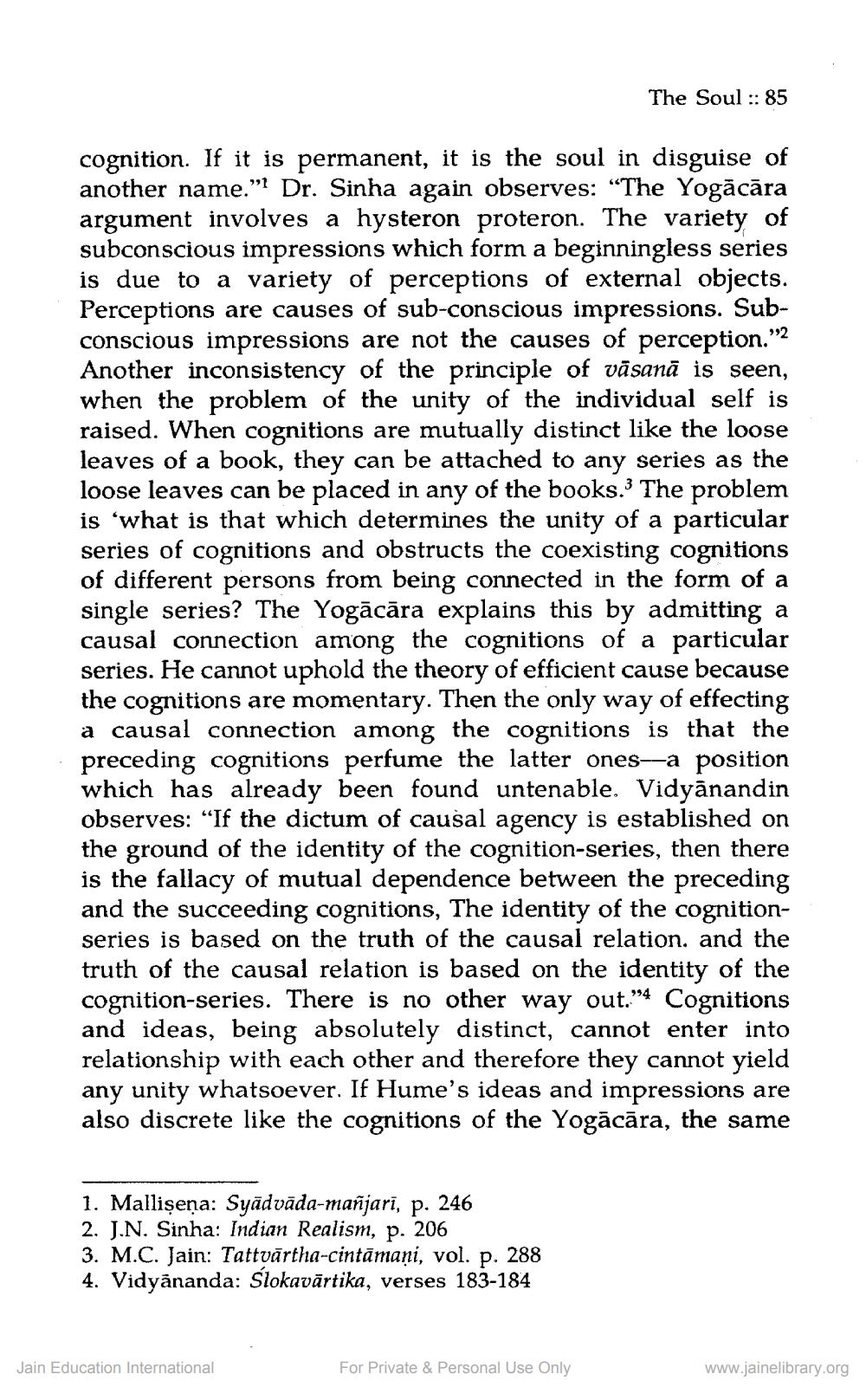________________
The Soul :: 85
cognition. If it is permanent, it is the soul in disguise of another name.”? Dr. Sinha again observes: “The Yogācāra argument involves a hysteron proteron. The variety of subconscious impressions which form a beginningless series is due to a variety of perceptions of external objects. Perceptions are causes of sub-conscious impressions. Subconscious impressions are not the causes of perception.” Another inconsistency of the principle of vāsanā is seen, when the problem of the unity of the individual self is raised. When cognitions are mutually distinct like the loose leaves of a book, they can be attached to any series as the loose leaves can be placed in any of the books. The problem is 'what is that which determines the unity of a particular series of cognitions and obstructs the coexisting cognitions of different persons from being connected in the form of a single series? The Yogācāra explains this by admitting a causal connection among the cognitions of a particular series. He cannot uphold the theory of efficient cause because the cognitions are momentary. Then the only way of effecting a causal connection among the cognitions is that the preceding cognitions perfume the latter ones—a position which has already been found untenable. Vidyānandin observes: “If the dictum of causal agency is established on the ground of the identity of the cognition-series, then there is the fallacy of mutual dependence between the preceding and the succeeding cognitions, The identity of the cognitionseries is based on the truth of the causal relation, and the truth of the causal relation is based on the identity of the cognition-series. There is no other way out.”4 Cognitions and ideas, being absolutely distinct, cannot enter into relationship with each other and therefore they cannot yield any unity whatsoever. If Hume's ideas and impressions are also discrete like the cognitions of the Yogācāra, the same
1. Mallișeņa: Syādvāda-mañjarī, p. 246 2. J.N. Sinha: Indian Realism, p. 206 3. M.C. Jain: Tattvārtha-cintāmaņi, vol. p. 288 4. Vidyānanda: Slokavārtika, verses 183-184
Jain Education International
For Private & Personal Use Only
www.jainelibrary.org




